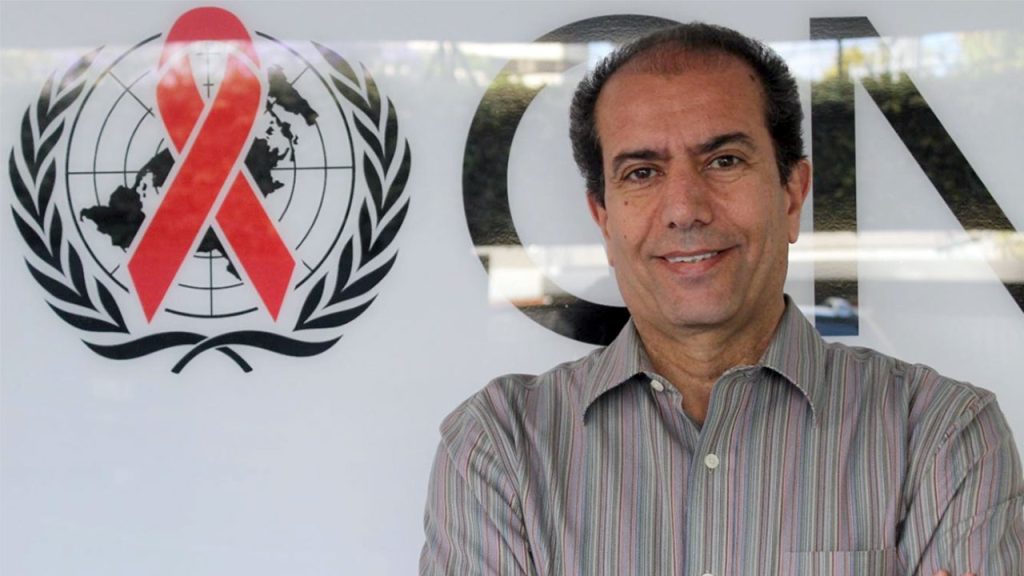The Latino population in the state of Maryland has doubled in the last decade, which calls for new developments in Maryland’s healthcare system to meet the population’s diverse needs.
Organizations such as Maryland Latinos Unidos (MLU) work hard to meet these needs. Aiming to convene alliances with other organizations, MLU’s main goal is to reduce health inequities in the Latino community in Maryland.

Walter Saba, MLU’s Senior Program Manager, started working with MLU two years ago. However, he has worked in public health for over 30 years. Having begun his career in communications, he gained an interest in public health after working as a consultant with the Johns Hopkins School of Public Health for a mass media campaign on HIV prevention in Peru, his native country.
Read the Q&A below to learn about what he does to serve the Latino population in the state of Maryland, along with his passion for health equity!
How does the work you do impact the Latino community in Maryland?
“At MLU, we advocate for more equitable access to healthcare. Our advocacy is based on data we collect from the field, which helps policymakers and health authorities make more informed decisions benefiting all segments of society.
Our work has also an impact on the health literacy of our constituents. We reach the Latino community through digital and traditional media as well as through Community Health Workers who function as ‘navigators’ and bridges between the healthcare system and the community.”
Why is your work important?
“According to the Executive Director Dr. Gabriela Lemus, representation is the ultimate goal of what Maryland Latinos Unidos does. We are kind of the boots on the ground of Latino leaders that are already in positions of authority at the state level. We learn first-hand about the needs of the Latino community in the diverse counties in Maryland and subsequently, we look for funding to meet these needs through community-based programs.
We also inform Latino leaders in positions of authority about the most pressing needs of the community so they can advocate on their behalf.”
What are your thoughts on the state of healthcare, or the state of your field, in Maryland?
“Latinos are an emerging population group in Maryland. The percentage of Latinos in the state has doubled in the last decade from 6% to about 12%. This population group faces social determinants of health (such as transportation, language, cultural barriers, immigration status, and others) that other population groups do not face.
The healthcare system in Maryland is not currently equipped to meet the diverse needs of Latinos, which results in health inequities. Unfortunately, there is not enough data collected on Latino health to customize the delivery of services to the needs of this population. Data is essential to identify health inequities; determine the incidence and prevalence of a disease among a population group; and identify risky behaviors to contract a disease or the protective factors to keep them healthy. The existing data is not disaggregated enough.”
Name your favorite and least favorite aspect of this work.
“My favorite aspect of the work is the connection with a diverse group of people with lots of experience. I learn a lot from them– learning never ends. Public health is a very multidisciplinary field, which gives you the opportunity to get in touch with people from different backgrounds, knowledge and expertise.
My least favorite aspect of this work is the lack of certitude about the continuity of our efforts because grants for Community-based Organizations (CBOs) are limited to usually 12 months or so. Constantly looking for new grants and funding opportunities takes a lot of our time and attention.”
What would help build your organization’s capacity to serve the Latino population in the state of Maryland?
“A more predictable source of income. At present, most small non-profits survive year-to-year based on short-term grants. Once the period of the grant is over – there is no funding to continue with project activities nor to retain trained and valuable human resources. Sustainability is certainly an aspiration but in the real-world small organizations have a hard time becoming sustainable. CBOs are non-profits. This means that our business model doesn’t generate a surplus to keep our operation running after the grant is over.
The State of Maryland needs to explore innovative funding mechanisms to support small non-profits whose work adds value to the well-being of all Marylanders.”
Walter Saba has worked in public health for the last 30 years managing health communication programs, building partnerships for health, and providing technical support on public health issues to more than twenty countries. During most of his career, Walter worked with Johns Hopkins University as a Senior Program Officer implementing behaviour and social change communication programs on HIV and AIDS, maternal health, and family planning, He has also worked in the Department of State / Office of the U.S. Global AIDS Coordinator as Team Leader for Latin America and the Caribbean supporting the U.S. President’s Emergency Plan for AIDS Relief (PEPFAR) in the Region. In 2009, Walter joined United Nations as Regional Consultant for UNICEF/West and Central Africa Office on Global Polio Eradication and worked with the Joint United Nations Program on HIV/AIDS (UNAIDS) on technical support, community mobilization, and partnerships. Mr. Saba currently works as a Senior Program Manager for Maryland Latinos Unidos managing the health equity portfolio of projects for the organization. He completed a Master of Health Sciences (MHS) degree at the Johns Hopkins University / Bloomberg School of Public Health (1993), and a Master of Business Administration (MBA) at the Johns Hopkins University / School of Business (2008).
Do you know a Maryland-based provider who we should highlight? Email Alive! Maryland at [email protected] with recommendations.
